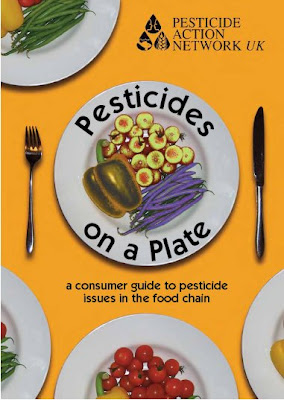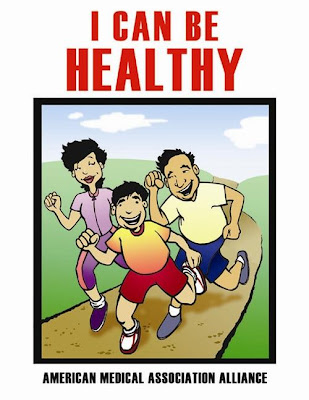Wednesday, September 23, 2009
Antioxidants Discovered
Labels: antioxidants, broccoli, cruciferous vegetables, curcumin, milk thistle, sulforaphane, turmeric, Vitamins
Monday, August 24, 2009
Veggie of the Day --> BOK CHOY
 Did you know that cabbage, like bok choy, is great for losing weight? One cup of raw bok choy contains only 22 calories while supplying you with a wealth of health-promoting nutrients.
Did you know that cabbage, like bok choy, is great for losing weight? One cup of raw bok choy contains only 22 calories while supplying you with a wealth of health-promoting nutrients. Like its other cruciferous cousins, broccoli, kale and mustard greens, cabbage is not only an excellent source of vitamin C and dietary fiber, but also contains many unique sulfur-containing phytonutrients, such as indole-3-carbinole (I3C) and sulforaphane. I3C and sulforaphane help activate and stabilize the body's antioxidant and detoxification mechanisms. Other sulfur compounds, which are produced as a result of cutting, chewing or digesting cabbage, increase the liver's ability to produce enzymes that neutralize potentially toxic substances.
Cabbage is easily available, inexpensive, and easy to prepare.
Read More ...
Labels: bok choy, broccoli, cabbage, cruciferous vegetables, Green veggies, healthy diet, Kale, sulforaphane
Wednesday, June 24, 2009
Do You Want To Know What Chemicals You Are Eating??
 A new website from the Pesticide Action Network called What's On My Food shows you the side dish of chemicals you eat with each serving of food (WARNING: you will be AMAZED and HORRIFIED!). Using data from the USDA and EPA, the just-launched site lists the pesticides found on everything from almonds to watermelon.
A new website from the Pesticide Action Network called What's On My Food shows you the side dish of chemicals you eat with each serving of food (WARNING: you will be AMAZED and HORRIFIED!). Using data from the USDA and EPA, the just-launched site lists the pesticides found on everything from almonds to watermelon.So, you thought you were being "good" by eating oatmeal for breakfast? Well, you also inadvertently ate six different types of pesticides!
Serving broccoli with dinner? That's not all you're getting - add a sauce of 40 pesticides--five of them are known carcinogens and 19 are hormone disrupters.
You'll also see side-by-side comparisons between organic and conventional versions of each food. (Surprise: Even organic produce collects pesticides from the air.) Researchers still haven't determined a "safe" level of pesticides, but many experts think that reducing exposure is a smart move.
SOURCE
Labels: almonds, broccoli, chemicals, fruits and veggies, healthy eating, organic food, pesticides, produce, toxins
Thursday, June 11, 2009
All About Baby Steps!
 According to a recent study, millions of middle-age Americans find it difficult to follow the recommendations to eat more fruits and vegetables and exercise more. In fact over the last 20 years, middle-age Americans who eat the daily recommended fruits and vegetables has dropped from 42% to 25%! You won’t be surprised to hear that the obesity rate has gone up from 28% to 36%.
According to a recent study, millions of middle-age Americans find it difficult to follow the recommendations to eat more fruits and vegetables and exercise more. In fact over the last 20 years, middle-age Americans who eat the daily recommended fruits and vegetables has dropped from 42% to 25%! You won’t be surprised to hear that the obesity rate has gone up from 28% to 36%. Eating well should be a lifelong practice, but many people find it challenging to keep up with all of the “rules” of how many fruits and vegetables to eat. It really isn’t that complicated. Telling someone who eats only processed foods might find it difficult to eat 5 servings of fruits and vegetables. Instead, they can start slowly. If eating an apple or broccoli is unappetizing, there are hundreds of recipes that incorporate more whole foods and might sound more appealing to the non-fruit or vegetable eater.
The important thing is that people realize that a diet high in chemicalized artificial junk foods increases one’s risk of developing heart disease or other chronic ailments. Why wait until you get sick to fix the problem? It seems that many people live by the quick fix mentality. They take a pill and eat whatever they want. Sure the pill may reduce the symptoms, but it’s not doing the other 100 things that proper eating and exercise can do for you.
Labels: broccoli, eating healthy, healthy diet, junk food, Obesity, Western diet
Monday, January 12, 2009
The Green That KOs Blood Sugar Damage
 Like going a couple of rounds with Tyson, high blood sugar can do a number on your vital organs. But eating this may give it a one-two punch right back: broccoli.
Like going a couple of rounds with Tyson, high blood sugar can do a number on your vital organs. But eating this may give it a one-two punch right back: broccoli.The tasty green florets are ripped with sulforaphane, a compound that seems to help keep high blood sugar goons on their best behavior, so they do less damage.
Pass the Antioxidants, Please
When your blood sugar is chronically high, it can damage the cells of your heart, eyes, kidneys, and nerves. But in a recent petri-dish study, adding sulforaphane to a mix of blood vessel cells and glucose cut oxidation (read damage) by as much as 73%. More research is needed to see if sulforaphane in the diet is as protective. But we already know that the compound is a super cancer fighter.
Source
Labels: Anti-oxidant, blood sugar, broccoli, cancer, healthy food, sulforaphane
Tuesday, July 22, 2008
How Broccoli Fights Cancer
 Broccoli (as compared to other cruciferous vegetables) has a particularly powerful type of sulforaphane, which the researchers believe gives broccoli its particular cancer-fighting properties. It appears that broccoli contains the necessary ingredients to switch ON genes that prevent cancer development, and switch OFF other ones that help it spread.
Broccoli (as compared to other cruciferous vegetables) has a particularly powerful type of sulforaphane, which the researchers believe gives broccoli its particular cancer-fighting properties. It appears that broccoli contains the necessary ingredients to switch ON genes that prevent cancer development, and switch OFF other ones that help it spread.There is plenty of evidence linking a healthy diet rich in fruits and vegetables to reduced cancer risk. But the study published in the Public Library of Science journal PLoS One is the first human trial investigating the potential biological mechanism at work, Mithen added in a telephone interview.
The power of food in normalizing chronic disease and helping you achieve optimal health is quite profound....
Source & Source
Labels: broccoli, cancer, cruciferous vegetables, eating healthy, healing with food, Holistic Health
Thursday, November 15, 2007
Broccoli - Good for You and Your Skin!
Broccoli, and the sprouts in particular, contain a chemical called sulphoraphane, which activates cancer-fighting enzymes inside your cells. The researchers spread broccoli sprout extract on the skin of six people, then exposed them to high levels of ultraviolet (UV) radiation. The areas of skin covered by the extract had 37 percent less redness and sunburn than skin not covered -- both indications of skin damage that could lead to cancer.Sunscreen, meanwhile, did not offer any protection against the UV rays, the researchers said.
Whereas sunscreen works by deflecting UV rays, and therefore must be reapplied often to work, broccoli sprout extract works by penetrating skin cells and stimulating their natural cancer-fighting mechanism. Since sulphoraphane extract from broccoli sprouts appears to fight cancer in your skin, the researchers believe it may be effective against cancer in other organs as well.
Labels: broccoli, natural therapy, skin cancer, sprouts, vegetables